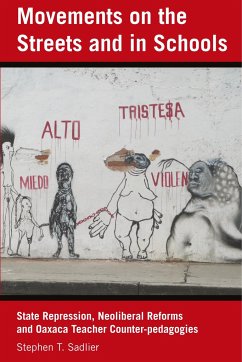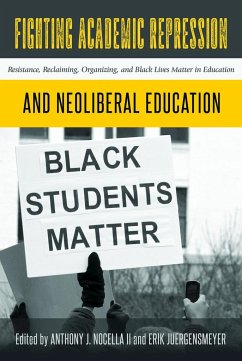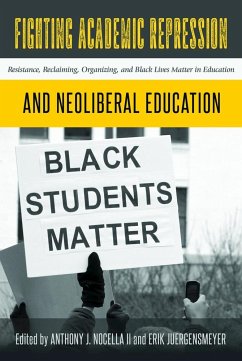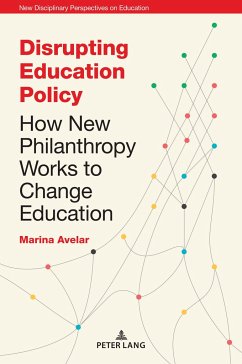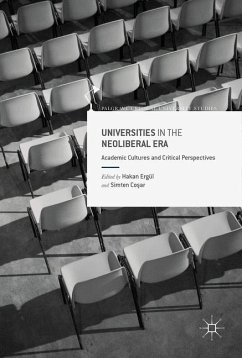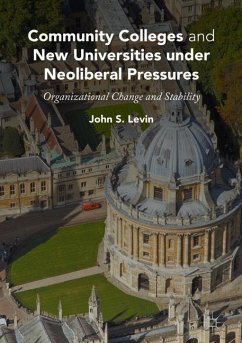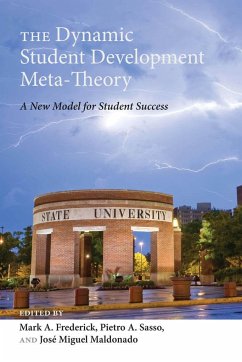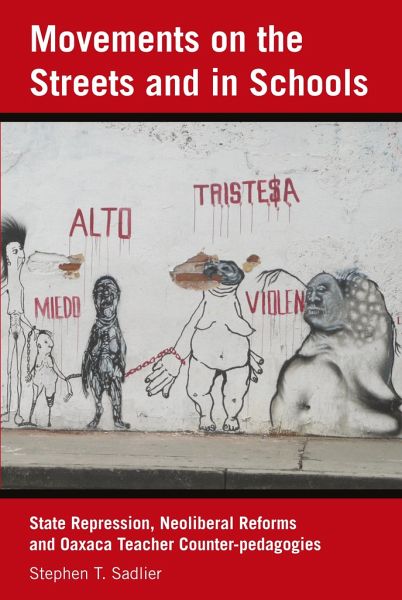
Movements on the Streets and in Schools
State Repression, Neoliberal Reforms, and Oaxaca Teacher Counter-pedagogies
Versandkostenfrei!
Versandfertig in 6-10 Tagen
124,85 €
inkl. MwSt.
Weitere Ausgaben:

PAYBACK Punkte
0 °P sammeln!
Research links social movement and education, but almost no related studies address classroom practices. Oaxacan teachers in this ethnography are political and pedagogical pioneers who move between the streets and schools. This book materializes from the practices of politics in classrooms and the manifestations and rural primaria communities in a major migration-sending region of Southeastern Mexico. Movements on the Streets and in Schools theorizes teaching and activism in creative tension, with what Anna Tsing called "friction of global connection." Using friction, three contentious concept...
Research links social movement and education, but almost no related studies address classroom practices. Oaxacan teachers in this ethnography are political and pedagogical pioneers who move between the streets and schools. This book materializes from the practices of politics in classrooms and the manifestations and rural primaria communities in a major migration-sending region of Southeastern Mexico. Movements on the Streets and in Schools theorizes teaching and activism in creative tension, with what Anna Tsing called "friction of global connection." Using friction, three contentious concepts emerge: quality, patrimony, and governability. Through the engaged universals of quality, patrimony, and governability, this book describes and analyzes how activism and teaching intertwine on the city streets and in the rural schools. Here, teaching, between uprisings, police raids, and austerity reforms, reveals how operating critically transcends a centered critical project. For instance, quality, to state and corporate philanthropists, leads to standardization, but parents and pupils rally around quality education to demand learning-centered schools. Likewise, patrimony may drive heritage for the tourist market, but patrimony also permits teachers to claim labor rights on historical grounds. Lastly, governability, an NGO imperative for Global Southern countries like Mexico, becomes pedagogical when the misrule of state authorities leads to police raids against teachers and cuts to public education. Movements on the Streets and in Schools is timely, as the activism-schooling nexus has just begun to generate interest with high-profile events on and around campuses worldwide. Both pre- and in-service teachers, education activists, administrators, and professors alike will find this book essential in bringing activism into their classroom practices in a clear and cohesive manner.





